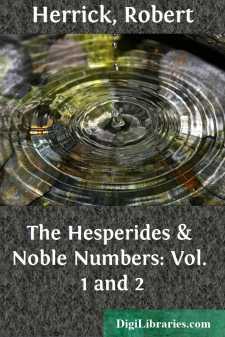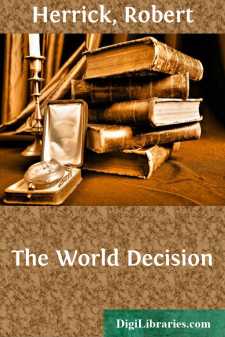Categories
- Antiques & Collectibles 13
- Architecture 36
- Art 48
- Bibles 22
- Biography & Autobiography 815
- Body, Mind & Spirit 144
- Business & Economics 28
- Children's Books 18
- Children's Fiction 14
- Computers 4
- Cooking 94
- Crafts & Hobbies 4
- Drama 346
- Education 58
- Family & Relationships 59
- Fiction 11835
- Games 19
- Gardening 17
- Health & Fitness 34
- History 1378
- House & Home 1
- Humor 147
- Juvenile Fiction 1873
- Juvenile Nonfiction 202
- Language Arts & Disciplines 89
- Law 16
- Literary Collections 686
- Literary Criticism 179
- Mathematics 13
- Medical 41
- Music 40
- Nature 180
- Non-Classifiable 1768
- Performing Arts 7
- Periodicals 1453
- Philosophy 65
- Photography 2
- Poetry 896
- Political Science 203
- Psychology 44
- Reference 154
- Religion 515
- Science 126
- Self-Help 85
- Social Science 83
- Sports & Recreation 34
- Study Aids 3
- Technology & Engineering 60
- Transportation 23
- Travel 463
- True Crime 29
Our website is made possible by displaying online advertisements to our visitors.
Please consider supporting us by disabling your ad blocker.
The Man Who Wins
by: Robert Herrick
Description:
Excerpt
The Four Corners in Middleton made a pleasant drive from the university town of Camberton. Many a time in the history of the house a party of young fellows had driven over the old turnpike that started where the arsenal used to stand in the sacred quarter of Camberton, and as the evening sun gilded the low, fresh-water marshes beyond Spring Pond, would trot on toward the rolling hills of Middleton. After dinner, or a dance, or, perhaps, mere chat over a late supper, they rode away at midnight singing as they whipped up their sleepy nags and otherwise disturbing the decorum of night in Middleton. Or, maybe, routed out early on a frosty October morning, after lighting pipes and a word with the stable-boy, they would snuggle into overcoats and spin away over the hard roads where the night frost still lay on the caked dust in the hollows like a crust of milk. In crossing the meadows the autumn sun swung into their faces, a comfortable solace on a morning drive, exciting them forward toward Camberton that they might report in the little stucco chapel while the tinny college bell was still harshly calling to prayer.
The Ellwells had kept the old Four Corners in Middleton long after the family had moved out into the wider world of Boston, and from farming and the ministry had entered the spheres of commerce and money-owning. In the time of old Roper Ellwell the Four Corners had been the parsonage for Middleton, and there first the Rev. Roper Ellwell had stirred the placid waters of meeting-house faith until something like a primitive revival had spread into neighboring parishes. His wife, a learned woman, had managed half a dozen young men who were preparing their Greek and Latin for Camberton. Those were the homely and kindly days of the Four Corners.
Then Roper Ellwell was called by the Second Church, in Boston, to be their pastor. This was the beginning of the Ellwell family in the good society of New England. The pastor's eloquence waxed into books that are found to-day on the shelves of the Harvard Library, with the University book-plate recording their gift by the author; also in black-cloth bindings, admirably printed, going to auction from some private library formed by a parishioner of the noted divine. When he became old in service, the congregation, now rich and fashionable, added to his ministrations the vigor of a younger man. Yet Roper Ellwell, on fine Sundays, still fired one of his former discourses from the lofty pulpit of his church. As these days grew rarer, the old pastor divided his time between his son's house on Beacon Street and the Four Corners.
Mark Ellwell was, as he should be, his father's son with the leaven of a newer world which led him into business instead of the ministry. But a fair product of Camberton, and a man well known and liked in Boston, where he was a merchant, when that term did not cover shop-keeping or gambling. He made a solid fortune in wool; built a house just beyond Charles Street on Beacon Street; was a member of two good clubs, and a deacon in his father's church.
In these days the Four Corners was used chiefly in the autumn months, and as a playhouse for the feeble pastor. Mark Ellwell built a summer home in Nahant.
There was one son who grew up—John. This Ellwell was sent to Camberton in due time, where he broke the family tradition by living a licentious life. He was kept in the university for two years, from respect to his family, in spite of his drunkenness and idleness. When the war broke out—John was then in his third year at Camberton—the wilder blood at the university found its field. Young Ellwell shirked his chance; while his mates were enlisting and leaving college, he slunk away in little sprees, pleading weak health. Mark Ellwell, shamed and mortified, would have horsewhipped his son into the ranks, but the mother defended the weakling.
One day young Ellwell announced his marriage to a Salem girl whom he had met the week before. His father gave him a house; as he chose to be a broker, his father started him with his own credit. A few years later, when the war was over and John Ellwell was succeeding in the general tide of success, established with a family and three young children, all seemed well....










